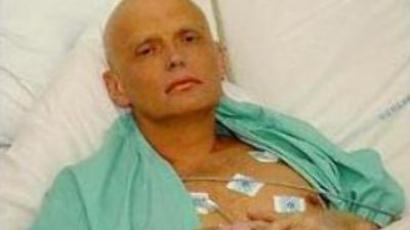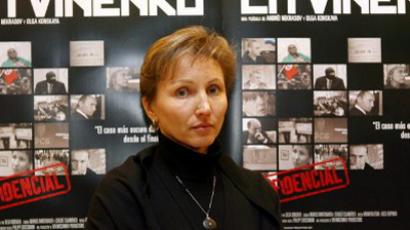Lugovoy ‘could not condition himself not to react to lie detector’
A British polygraph test has revealed that Andrey Lugovoy did not murder ex-spy Aleksander Litvenenko. But can a lie detector be hoodwinked? To answer this, RT sat down with Bruce Burgess, who personally conducted the polygraph test on Lugovoy.
Former FSB agent Aleksandr Litvenenko died of polonium-210 poisoning in November 2006. British authorities accused Duma deputy Andrey Lugovoy of being involved in the murder, but he maintained his innocence. The case has soured relations between the UK and Russia, as Russia refuses to hand over Lugovoy, who was elected Duma deputy in 2007, to Scotland Yard.Now a British polygraph test seems to reveal that Lugovoy did not take Litvenenko’s life: asked whether he was directly or indirectly involved in Litvinenko’s death, and whether he had dealt with polonium, Lugovoy responded, “no.” Bruce Burgess, a member of the British Polygraph Association spoke to RT about their encounter. RT:Did you know who the person that you tested was? Bruce Burgess:I had no idea when I travelled to Russia who was going to be tested. I knew it was a serious case, but I was completely in the dark until I met Andrey Lugovoy. RT: How does this all work? The test lasted for three hours, didn’t it? Tell us about it. Why was it so long?BB:Yes, the test lasted a long time. Well, of course, we had to use an interpreter throughout the test and it was very important before I attached Andrey to the polygraph that he was fairly relaxed and that he understood how the polygraph works, and that he knew what was going to happen to him. The whole process depends, really, on making sure that the subject knows exactly what’s going on. And one of the rules with a polygraph is no surprises. He also has to be used to the questions and be happy with the questions to answer them without being surprised by any questions. So there’s a long process before we actually attach anyone to a polygraph. RT: Is there any chance that a former Russian security officer could somehow afford a hoodwink to your lie detector?BB:No. I did question Andrey a lot about how much he knew about the polygraph before the test and he was very honest, he obviously had no knowledge. I do not believe that on a serious subject like that anyone can condition themselves not to react on a polygraph test. RT: Nonetheless, there are skeptics, scientists, criminologists around the world that don’t really believe in polygraph tests. How do you counter their criticism?BB:Well of course, nothing is one hundred per cent. I can’t say it’s a hundred per cent. All I can tell you is that when I give you a result, I am certain in my mind it’s the right result. If I’m not, I don’t give a result. It’s inconclusive. I would never give a result any way, deceptive or truthful, unless I can stand by that result. RT:This evidence isn’t admissible in a British court, but would you stand by your guns if it was?BB: I would stand by my guns a hundred per cent and if it was admissible in court, I would be very pleased to give evidence in court.














